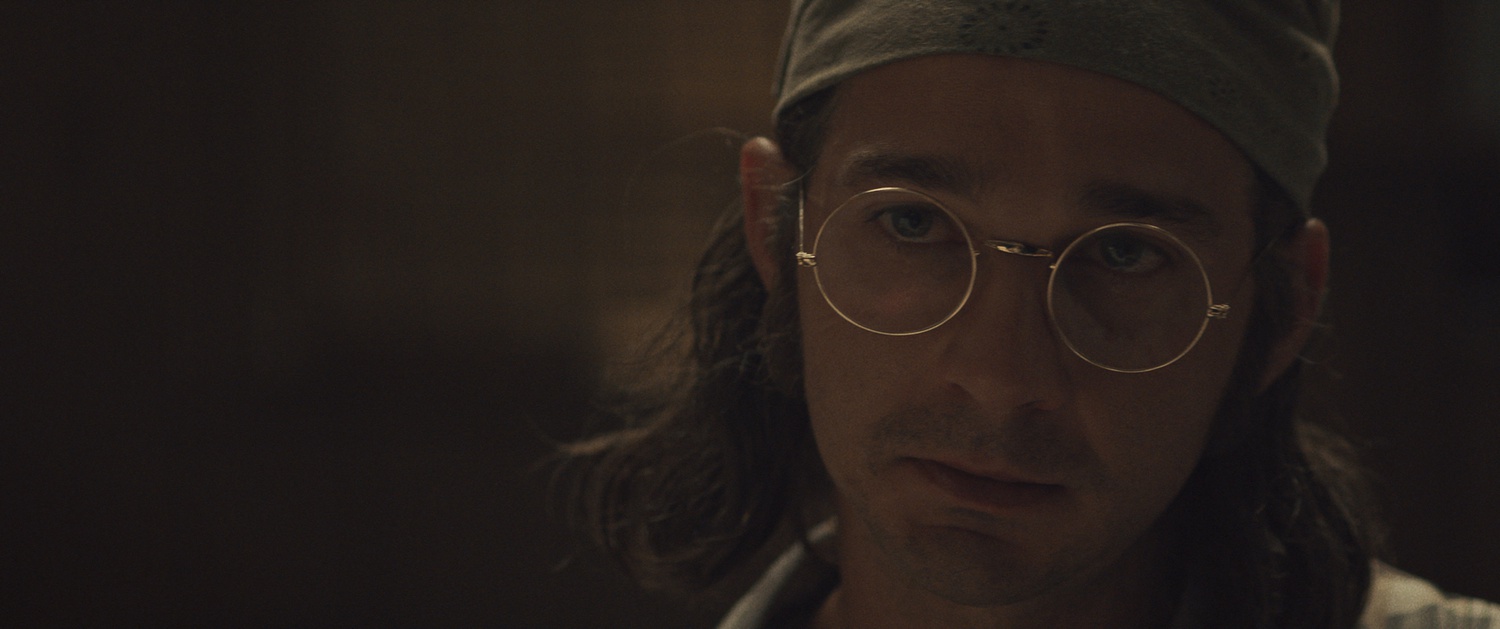
News
News Flash: Memory Shop and Anime Zakka to Open in Harvard Square

News
Harvard Researchers Develop AI-Driven Framework To Study Social Interactions, A Step Forward for Autism Research

News
Harvard Innovation Labs Announces 25 President’s Innovation Challenge Finalists

News
Graduate Student Council To Vote on Meeting Attendance Policy

News
Pop Hits and Politics: At Yardfest, Students Dance to Bedingfield and a Student Band Condemns Trump
‘Honey Boy’: Shia LaBeouf’s Poignant Magnum Opus Confronts His Painful Childhood
Dir. Alma Har’el—4 STARS

Actor Shia LaBeouf, from Disney’s “Even Stevens” to “Transformers” to A24’s indie-drama “American Honey,” has been gracing the screen for over two decades. Whether you know him as mischievous adolescent Louis Stevens, Bumblebee’s sidekick Sam Witwicky, or the actor who seems to apologize frequently for his controversial actions, LaBeouf has been immersed in Hollywood culture for the majority of his life. But his latest movie, “Honey Boy,” is by far his most personal endeavor. Not only is he the screenwriter, but the film is based on his rise to fame and the dysfunctional relationship he had with his abusive father, who is played by LaBeouf himself.
“Honey Boy," following a nonlinear timeline, revolves around Otis Lort — who represents a young Shia — at 12 years old (Noah Jupe) as a child actor living with his father in a motel, and at 22 years old (Lucas Hedges) as a blockbuster-movie star in rehab, struggling with addiction and PTSD from his childhood. 12-year-old Otis has a complex relationship with his abusive yet loving father; an ex-rodeo clown, James Lort (LaBeouf) is volatile, argumentative, and unreliable, yet also fiercely protective of his son. The film documents the intense highs and lows of their relationship, and how Otis’s childhood experiences shape him later in life. “Honey Boy," with introspective directing and powerfully honest performances from Jupe, Hedges, and LaBeouf, is a heartbreaking reflection on the inextricable ties of family.
LaBeouf embarks on a challenging yet potentially healing experience by writing and portraying a highly nuanced and developed character based on his father. While James Lort relentlessly bullies his son, or abandons him on set, he also grapples with his own demons. As a recovering alcoholic and heroin addict, he attends group meetings where he has emotional reflections on his struggles with substance abuse, and expresses his desire to be a good father; his multidimensional character ultimately adds great depth to the film. Jupe and LaBeouf have natural onscreen chemistry, and convincingly portray the tense dynamic between father and son. Jupe is brilliant as young Otis, effortlessly innocent and evocative as a boy torn between the love he feels for his father and the abuse he endures from him — “I’ve missed you for a long time, Dad," he imagines saying to him in a bittersweet scene at the motel. LaBeouf is nothing short of painfully authentic, embodying the cruel and conflicting nature of his character with ease.
The film is cleverly edited to switch from 2005 to 1995 in a way that showcases deliberate parallels between the two phases of Otis’s life. Small moments mirror each other to depict the lasting impact of Otis’s childhood on his adult psyche. For instance, he’s shown swimming at his motel’s pool at 12 years old, then swimming at rehab 10 years later. Hedges delivers a simultaneously sensitive and frenetic performance as a mature Otis dealing with post-traumatic stress disorder. Living at a state-of-the-art rehab facility, he goes from therapy sessions to tending a farm with chickens to group swimming exercises; all the while, his addiction and trauma haunt him. “My dad’s not the reason I drink,” he insists in therapy. “He’s the reason I work.” As he reflects upon the physical abuse he faced, his hardened facade begins to crumble, and Hedges painstakingly portrays this fragile vulnerability.
The secondary relationship in the movie, which isn’t elaborated upon much, is between 12-year-old Otis and his neighbor, a young woman credited simply as Shy Girl, played by singer FKA Twigs. The two share a protective and tender bond as Shy Girl looks after Otis when his father falls short. Their dynamic is confusing as it is ambiguously intimate, bordering on inappropriate, and driven by little dialogue. Her confusing presence in the film leaves something to be desired, aside from one impactful quote as the pair watch a snake skitter across the surface of their motel’s pool — “You can walk on water ‘til someone tells you that you don’t know how to,” she intones quietly.
“Honey Boy” is music video director and documentarian Alma Har’el’s first time directing a narrative film. With warmth in each scene, every moment of “Honey Boy” feels intentional and reflective. What the film lacks in breadth — viewers see little beyond Otis and his father’s relationship — it more than makes up for in depth, with every nuance of their dynamic explored. What has the potential to come across as a selfish and ego-driven project on LaBeouf’s part is really a moving and bold depiction of the empathetic power of cinematic storytelling. As singer Alex Ebert croons the heartfelt lyrics of his song “Glimpses” in the final scene, “Honey Boy” proves to be a bittersweet and beautiful exploration of trauma.
Want to keep up with breaking news? Subscribe to our email newsletter.
Most Read
- Harvard Will Fight Trump’s Demands
- Trump Administration Freezes More Than $2 Billion in Federal Funding to Harvard
- A Palestine Exception to Harvard’s Academic Mission
- Adams House Withdraws Support for Anti-Zionist Passover Event, Citing Policy on Unrecognized Student Groups
- Harvard Kennedy School Dean Denounces Visa Revocations in Email to Affiliates
